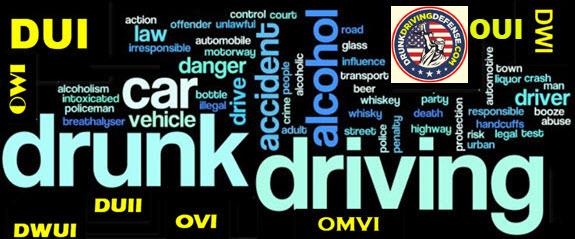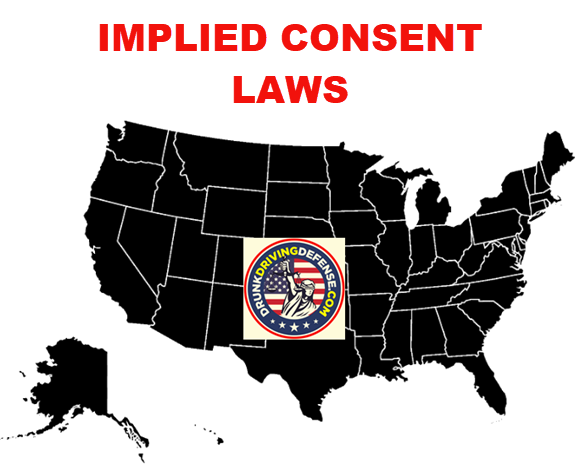What to Know About a 1st Offense DUI
This article provides a summary of first-time DUI penalties. Check your state’s laws for the latest info on DUI/DWI, as these state laws (as amended in each state) will frequently be modified, repealed, or added. Don’t assume the first DUI consequences in your state are the same as they were 20 years ago.
All US states have strict penalties for vehicular crimes because of federal highway safety regulations. NHTSA sets national highway standards for States to follow to discourage impaired driving.
Standard penalties for first DUI. DUI cost, imprisonment, higher insurance premiums, and other penalties. “How long does a D.U.I. stay on your record?” is a common online search query.
Do DUIs ever go away? DUI lawyers can sometimes make charges disappear, obtain a reduction of charges, or win a not guilty verdict. They do this by going to court or winning a pre-trial or mid-trial motion based on the 4th Amendment. For example, if there was no valid reason to stop the car, the criminal charge would be dropped.
If convicted of impaired driving, on your criminal record, does a DUI go away after a period of years? In some jurisdictions, no it does not. In others, only a 1st conviction of DUI may be subject to record restriction or expunction.
Can you get a D.U.I. expunged? Maine and Georgia (along with the majority of states) do not have any mechanism for expunging drunken driving convictions. Mississippi and Michigan have laws that let first-time DUI offenses be kept private within their own state.
Even where expunction is permitted, no state has laws to restrict or remove anything other than DUI charges, first offense. Thus, repeat offenders will be stuck with any subsequent convictions forever, and penalties for second conviction of DUI are usually exponentially more punitive.
Getting arrested for a first-time DUI is a shocking experience for first-time offenders. One common problem in drunk driving arrests, though, is the immediate suspension or revocation of driving privileges before the criminal case is resolved, based upon an “implied consent” violation.
This type of violation creates an immediate license suspension or revocation that is typically imposed on all who REFUSE chemical testing, as well as those who submit to testing and yield an illegal alcohol level (typically being 0.08 gram per cent or higher for adults, except in Utah where 0.05 grams percent is now their adult-age legal limit).
How to Approach a First Time Offense DUI
A 1st time DUI (driving under the influence) charge will be aligned with local laws, since the United States has no national drunken driving or drugged driving laws. The likelihood of winning your case depends on multiple factors but can improve for those who refuse to submit to post-arrest testing and then no judicial warrant is obtained for that blood or other forensic sample.
A police officer will check how impaired you are by looking at your alcohol level and how well you can function. A police officer will assess your impairment by checking your alcohol level and your ability to function.
The officer may request that you perform tests to determine if you are intoxicated. However, you have the option to decline these tests if you choose not to participate, yet a few states seek to sanction those who do not participate.
In 2024, virtually all law enforcement officers in America now use the standardized field sobriety tests as originally promulgated (and regularly updated) by N.H.T.S.A. Because these “evaluations” are a form of gathering incriminatory evidence against you, a person should decline participating in any type of “false science” evaluations (like these) that are not “scientific” or irrefutable in their accuracy.
The amount of alcohol in your bloodstream is a vital factor in drunk driving (DUI-alcohol) cases. Each state has legally established their unlawful limit for adult drivers and those below 21 years of age.
Moreover, federal regulations dictate the unacceptable BAC alcohol level for CMV (commercial motor vehicle) drivers as 0.04 gram % or more, while operating a large truck, bus, or passenger van.
If your alcohol concentration is above the legal limit, you can be charged with a DUI without additional evidence of “impairment.” If your alcohol level is below the legal limit, a police officer can still apprehend you if they notice and document signs of impairment. These might include you having slurred speech or failing to pass field sobriety tests.
Under per se DUI regulations, if your alcohol content is equal to or surpasses the legal limit, law enforcement can accuse you of a DUI without additional proof of your impairment. If your alcohol content is under the legal limit, an officer can still detain you if they gather evidence of symptoms of impairment. These may involve you speaking incoherently or not successfully completing field sobriety tests.
If your blood alcohol level is significantly high, typically about 0.15% or above, or if you are carrying minors, the offense becomes more severe. If an accident causing property damage, injury, or death occurs due to your actions, you could be charged with a felony.

Penalties for D.U.I. after a 1st DUI Conviction
Being charged with a 1st offense DUI brings a hefty price tag. To inquiries like, “what is the average cost of a DUI?”, these are non-sensical and meaningless questions since every case is different. Unless the question is focused on what top-rated local attorneys charge to aggressively fight a case.
If convicted, the person will have to pay the DUI fines & add-on fees & surcharges, plus related compliance costs (e.g., probation supervision fees). Even with a reduced criminal charge like reckless driving or careless operation, if such a great result can be obtained, these costs and monetary fines may be similar to 1st DUI penalties.
In addition to court-imposed penalties and court costs, a first DUI offense conviction can result in:
- Legal defense expenses (lawyer’s fees) and charges for expert witnesses, and other costs of the case.
- Filing fees, possible interlock costs, and other costs for dealing with the administrative law “implied consent” suspension or revocation of your driver’s license
- In some states, the costs associated with the towing, impoundment, and release of your vehicle.
- Mandatory community service hours to be served, while on probation.
- The expenses for ignition interlock device leasing plus the installation, downloading and removal costs.
- Alcohol and drug substance misuse (or abuse), educational training (DUI school) and possible therapy costs.
- Higher car insurance premiums, after conviction or any administrative suspension or revocation.
- Having to pay compensation for injuries and property damage if the DUI accident is your fault.
This list (for some clients) may include lost earnings due to being absent from employment, or for rideshare vehicle transportation, taxis, or other substitute transportation.
Securing accommodation (rental housing) can be challenging, particularly when dealing with a subsidized housing aid scenario. Property owners, especially expensive complexes, often do background checks on criminal and financial history. They may refuse housing to someone with a DUI conviction if the background check reveals it.
Talk to a Lawyer About Your First Offense DUI Charge
Getting a DUI can cost a lot of money. If convicted, this can also have a negative impact on your life, with penalties, court fees, possible jail time, and losing your license.
These reasons for fighting are important to know before your forfeit your rights by walking into court and admitting guilt. Putting a DUI on your driving record can have irreversible, harsh consequences.

Before going to court to “get it over with,” consult with your local attorney found through this DrunkDrivingDefense.com website. Each affiliate allows an initial DUI lawyer FREE consultation.
Only an experienced DWI-DUI attorney who has a long track record of success in your court jurisdiction should be trusted with your criminal defense. This is who can answer your important questions and also assess your likelihood of success, if you fight the charges.
Other Topics of Possible Interest for Potential First Time DUI Offenders
If I have a license suspension, can I obtain an Interlock Restricted License?
- Can you be a Nurse with a DUI?
- Does a CDL DUI first offense terminate commercial driving privileges?
- Can you pass a background check with a misdemeanor DUI?
- Your Legal Rights at a police pullover, and suspected of a DWI-DUI

More First Offense DUI Attorney Resources
If you’d like to learn more about first DUI penalties, read some of our informative articles on the subject below. We explore all different aspects of first-offense DUIs.



